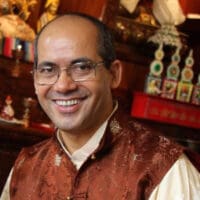Overview
This session presented a number of training programs that have been developed using contemplative practices in educational and applied settings to encourage human flourishing at its highest level. Geshe Lobsang Negi discussed his work developing and teaching Cognitively-Based Compassion Training (CBCT), a secular program that seeks to enhance prosocial skills, build character, and enhance basic human capacities for compassion, connection, and forgiveness. Geshe Lobsang shared positive findings from research on the effects of CBCT on biological, psychological and behavioral processes, and will discuss implications for such trainings on individual and social levels. Dr. James Doty spoke on CCT (Compassion Cultivation Training), a standardized compassion training program developed at Stanford University, and research findings so far on its effects. Situating this initiative at Stanford University within its larger context, Jim also spoke on the implications of the current scientific research in compassion and altruism for our understanding of human behavior, education and clinical therapeutic applications. Finally, Aaron Stern presented about his work with The Academy for the Love of Learning, which promotes a model for transformative learning that facilitates the emergence of a natural, shared, secular-based moral and ethical framework for learning and human engagement. Stern discussed the Academy’s core program, Leading by Being, which is the fullest expression of this model.
- Dialogue 2627 sessions
- January 21, 2013Drepung Monastery, Mundgod, India


